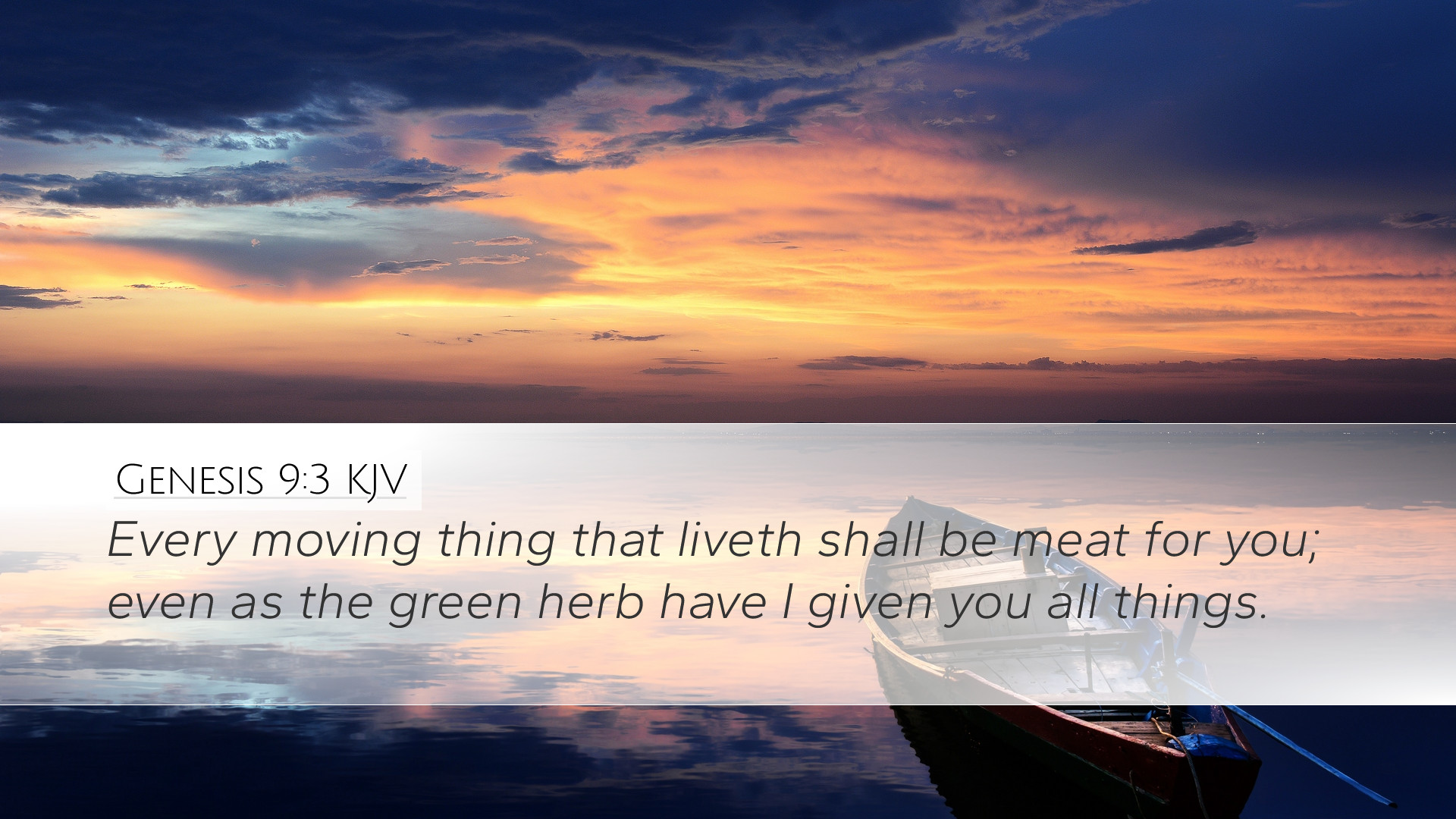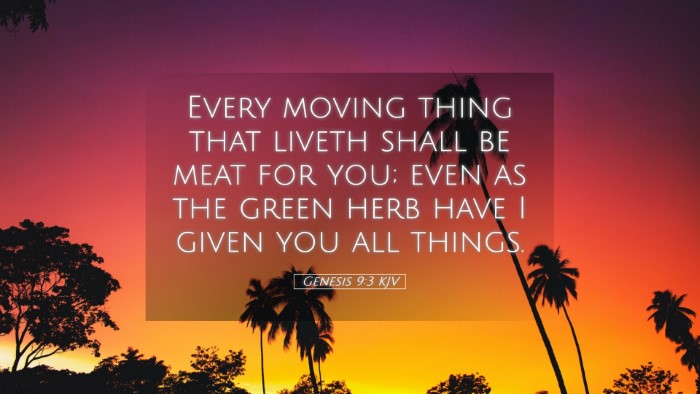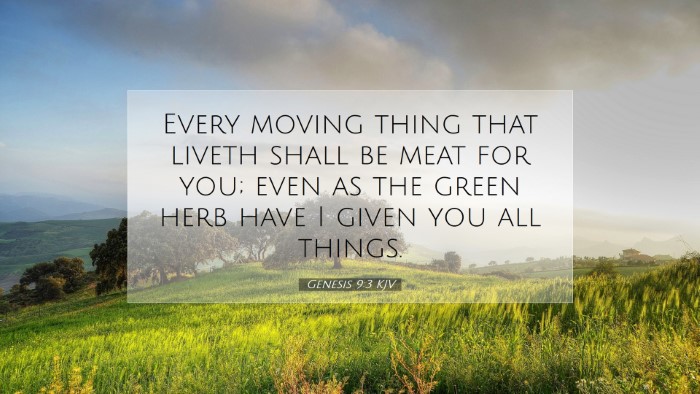Commentary on Genesis 9:3
Verse Context: Genesis 9:3 states, "Every moving thing that liveth shall be meat for you; even as the green herb have I given you all things." This verse comes after the Flood, establishing a new covenant with Noah and his descendants, providing comprehensive implications for dietary practices and the relationship between humanity and animals.
1. Historical and Theological Background
Divine Grace and Permission: The granting of permission to eat animals emphasizes God's grace after judgment. The flood was a drastic measure against humanity's wickedness; however, this verse indicates a restoration of sorts, enabling human survival and adaptation in a post-Flood world.
Importance of Ritual and Holiness: Matthew Henry notes that this directive points towards the significance of ritual purity and the holiness of life that God expected from His people. The later laws concerning dietary restrictions (Leviticus 11) further elaborate on God’s intention to maintain a distinction between His people and the world.
2. Ethical Implications of Diet
This verse opens a conversation regarding the ethics of eating animals. Clarke emphasizes that while God allows the consumption of flesh, it must be approached with respect for life. The idea of stewardship is pivotal; humanity is called to be caretakers of creation, not just consumers.
- Respect for Creation: Each creature is imbued with the breath of life, and humans must honor this by ensuring humane treatment.
- Sustainability Considerations: The mandate to eat living creatures must also factor in sustainability, echoing the original stewardship mandate given in Genesis 1:28.
3. Theological Reflections on Food and Provision
Albert Barnes provides an insightful perspective on God's provision. The statement here parallels the original provision of plants for food, showcasing God's consistent care for humanity. This verse serves as a transition from a vegetarian diet to a more varied diet, signifying adaptation to new realities post-Flood.
Symbolism of Meat: The acceptance of animal flesh reflects the larger theme of sacrificial offerings where God seeks fellowship with humanity through shared meals, a recurring motif seen throughout scripture, foreshadowing the ultimate sacrifice in Christ.
4. The Broader Covenant Implications
The context of this verse is critical; it underscores the new covenant established with Noah, illustrating God's ongoing relationship with humanity despite previous transgressions. This verse positions human beings in a renewed role where they are both blessed and burdened by ethical implications towards their actions in consuming life.
- Covenant Responsibility: The allowance to consume animals comes with a responsibility to maintain a just and righteous relationship with all of creation.
- Connection to New Testament Theology: Moving into the New Testament, as believers are made new creations, the concept of food becomes broader, inviting all nations into relationship with God, expanding upon the foundations laid in Genesis.
5. Practical Applications for Today
In contemporary contexts, Genesis 9:3 invites various applications, particularly among pastors, theologians, and laypeople alike:
- Feasting with Purpose: Meals should not be mere sustenance but gatherings of significance, reflecting community, thanks, and remembrance of God’s provision.
- Ethical Eating Practices: Challenges of eating ethically resonate today, prompting thoughtful consumption choices that honor the stewardship entrusted to humanity.
Conclusion
The command in Genesis 9:3, while particular to its historical context, reverberates through time, offering critical reflections on humanity’s relationship with God, creation, and the ethical considerations surrounding diet. As we reflect on this verse, we are reminded of the sacred responsibility that accompanies God’s generous gifts, illuminating our path toward living justly and faithfully before Him.


